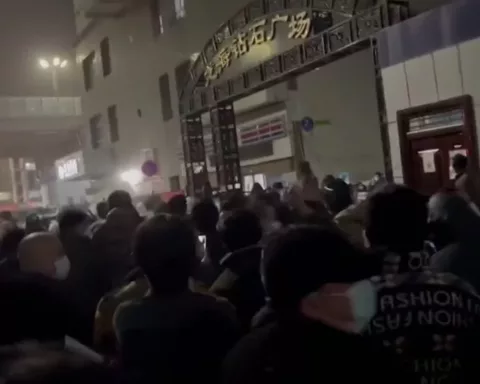SOFIA — Bulgaria’s parliament has confirmed a government led by Kiril Petkov after his new anti-corruption We Continue the Change party (PP) sealed a governing coalition deal with three other factions.
Lawmakers on December 13 voted 134-104 in favor of Petkov’s nomination, then the structure and composition of his proposed government was approved in rapid succession.
The moves would give Bulgaria its first regular cabinet since the decade-long rule of Prime Minister Boyko Borisov ended in April amid public anger over corruption.
We Continue The Change, which won but fell far short of a majority in repeat elections in mid-November, reached a coalition agreement on December 10 with the leftist Bulgarian Socialist Party, the anti-elite There Is Such A People party, and the liberal anti-corruption group Democratic Bulgaria.
The next day, President Rumen Radev handed over a mandate to Petkov, the co-leader of We Continue The Change, to form a new government.
Petkov then presented the members of his proposed government and announced that “zero tolerance for corruption” will be the motto of his cabinet.
An overhaul of the country’s anti-corruption agency, boosting COVID-19 vaccinations, and taking steps to shield citizens from rising energy costs would be among the main priorities of his cabinet, he said.
Borisov stepped down in April after he lost a majority in parliament following months of anti-corruption protests against him and his GERB party.
The move led to a political deadlock that has resulted in three parliamentary elections this year.
Elections in April and July failed to produce governments because of unclear majorities and disagreements between political parties on a new cabinet, leaving the European Union’s poorest member state in the hands of an interim administration.
In the November 14 vote, We Continue The Change won 67 seats in the 240-seat parliament, while Borisov’s GERB party took 59 seats.
Five other parties entered the fragmented legislature, including the ethnic Turkish MRF party with 34 seats, followed by the Socialists with 26 legislators, There Is Such A People with 25 seats, Democratic Bulgaria with 16 seats, and the pro-Russian nationalist group Vazrazhdane with 13 seats.






